The Concept of World from Kant to Derrida
The Concept of World from Kant to Derrida
Sean Gaston

London New York
Published by Rowman & Littlefield International, Ltd.
16 Carlisle Street, London, W1D 3BT
www.rowmaninternational.com
Rowman & Littlefield International, Ltd. is an affiliate of Rowman & Littlefield
4501 Forbes Boulevard, Suite 200, Lanham, Maryland 20706, USA
With additional offices in Boulder, New York, Toronto (Canada), and Plymouth (UK)
www.rowman.com
Copyright 2013 by Sean Gaston
All rights reserved . No part of this book may be reproduced in any form or by any electronic or mechanical means, including information storage and retrieval systems, without written permission from the publisher, except by a reviewer who may quote passages in a review.
British Library Cataloguing in Publication Information Available
A catalogue record for this book is available from the British Library
ISBN: HB 978-1-7834-8000-5
PB 978-1-7834-8001-2
Library of Congress Cataloging-in-Publication Data
Gaston, Sean.
The concept of world from Kant to Derrida / Sean Gaston.
pages cm
Includes bibliographical references and index.
ISBN 978-1-78348-000-5 (cloth : alk. paper)ISBN 978-1-78348-001-2 (pbk. : alk. paper)ISBN 978-1-78348-002-9 (electronic) 1. Metaphysics. I. Title.
BD111.G38 2013
110dc23 2013015821
 The paper used in this publication meets the minimum requirements of American National Standard for Information SciencesPermanence of Paper for Printed Library Materials, ANSI/NISO Z39.48-1992.
The paper used in this publication meets the minimum requirements of American National Standard for Information SciencesPermanence of Paper for Printed Library Materials, ANSI/NISO Z39.48-1992.
Printed in the United States of America
Acknowledgements
This project began in earnest in 2009 and I am grateful to William Leahy, Head of the School of Arts at Brunel University (London), for supporting my application for research leave in 2010. I have also received constant encouragement from my colleague William Watkin at Brunel. I am grateful to the staff of the Upper Reading Room of the Bodleian Library and of the Taylorian Institute at the University of Oxford for their ready assistance and would like to pay tribute to the late and much lamented Vera Ryhaljo who worked for many years in the Upper Reading Room. I also owe a great debt to Sarah Campbell for seeing this work through the press. Jane Brown has graciously allowed me to use one of her exquisite photographs for the front cover. For those who are interested in the work of this remarkable photographer, see www.janebrownphotography.com.
An earlier version of Derrida and the End of the World first appeared in New Literary History 42, no. 3 (2011). I would like to thank Rita Felski and Johns Hopkins University Press for allowing me to include this material. A slightly longer version of Derrida and the Eco-Polemicists was also published in Paragraph 36, no. 3 (2013). Kevin Hart of the University of Virginia kindly offered very constructive comments on earlier drafts of this work. I am also grateful to Peter Otto of the University of Melbourne for his judicious advice and for his own remarkable work Multiplying Worlds (2011), which encouraged me to address the problem of world. My old friend Stephen Farrow was an early and much appreciated reader.
This work is dedicated to my friend Tony Birch from Melbourne, ex-fireman, historian, poet, photographer, museum curator, political agitator, academic, short story writer and novelist. Everything else is for Carmella Elan-Gaston.
Preface
Writing on the World
I
In the mid-eighteenth century metaphysics was broadly understood as the study of three areas of philosophical thought: theology, cosmology and psychology. It is commonly recognized that throughout the nineteenth and twentieth century philosophy first challenged the place of God as the centre of all things and then turned to the status and claims of the self. This book is concerned with the fortunes of the third of these formidable metaphysical concepts, the world. Its aim is to provide a clear and concise account of this field of philosophical investigation from the middle of the eighteenth century to the end of the twentieth century and to explore the possibilities and limitations of the concept of world.
Obviously the scope of such an enterprise would far exceed this book without some selections and exclusions. I have chosen to concentrate on the history of Western, Continental philosophy and have limited myself as far as possible to five principal thinkers noted for their distinctive concepts of world: Immanuel Kant (17241804), G. W. F. Hegel (17701831), Edmund Husserl (18591938), Martin Heidegger (18891976) and Jacques Derrida (19302004). If the scope of this project were to provide a comprehensive examination of world, I would have included whole chapters on Arthur Schopenhauer (17881860), Friedrich Nietzsche (18441900) and Maurice Merleau-Ponty (19081961) as well as an extended discussion of the more recent work of Jean-Luc Nancy (1904). However, the five philosophers that I have focused on work within a shared tradition of problems which begin with Kants reaction to traditional metaphysics and culminate with Derrida addressing the problem of world in the wake of Husserl and Heidegger. Clearly a book could be written on how each of these five philosophers treats the concept of world and I have had to make some judicious if rather severe choices. At the same time, there is an evident tradition of common gestures, motifs and problems that arise from Kant to Derrida in writing on the world.
The concept of world raises the problem of how one deals with what is always already therethe worldand to what extent one gives the subject the power to shape or to constitute a world or many worlds of its own. The concept of world also brings attention to the possibility of a discrete domain, realm or sphere. Since Plato, philosophy has relied on the assertion of such world-like concepts that do not describe the world or my world but a distinct conceptual domain. As will soon become apparent, these three types of worldthe world, my world and a contained world-like domainare often difficult to distinguish.
Beyond the broader issues that concepts of world raise in relation to the object and the subject and the attempts in the twentieth century to move beyond these traditional designations, world also presents the need to establish an essential difference between what is merely in the world and the assertion of a unique vantage point or wider perspective of the world as a whole . The five philosophers that I look at all attempt to establish new grounds for seeing the world as a whole. Nonetheless, from Kant to Derrida philosophy has been driven by the familiar but difficult imperative to be truly and authentically in the world while also searching for the most reliable vantage point above and beyond the world as a whole . The history of philosophy shows us that philosophy not only requires world-like discrete concepts or clear structures of containment but that it also needs the secular equivalent of a god-like vantage point from which one can sufficiently stand back from the world itself and judge it as a whole.
Though concepts of world have been a part of Western philosophy since the biblical and classical periodthere are countless references to haolam , ksmos , mundus , orbis , universitas there has been relatively little scholarly attention to the concept of world itself. Not least at a time when the concept of world has been given a new scope in recent ideas of globalization and when the earth itself has become the focus of an urgent ecological imperative, there is need for a more comprehensive account of the history of the concept of world. While this book is not directly concerned with the politics of globalization or with the various forms of environmental, geographical and ecological writings on the present perilous state of the planet, it is hoped that it will be of use in challenging the often seemingly self-evident and ahistorical use of concepts of world.

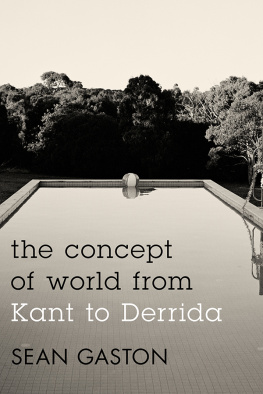



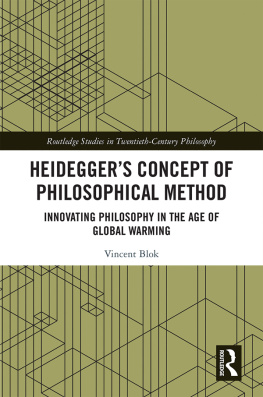
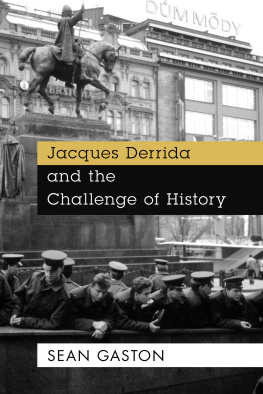
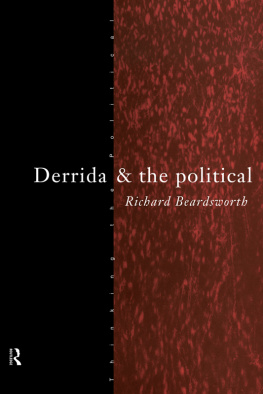
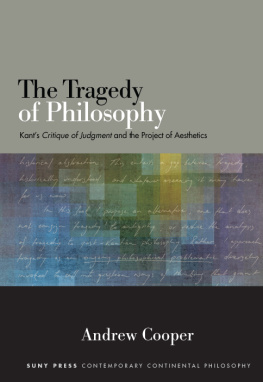
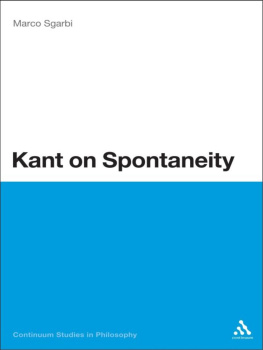
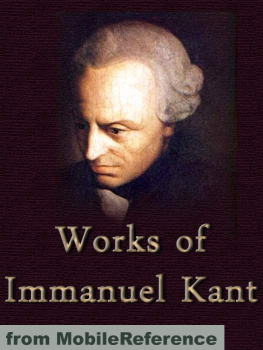

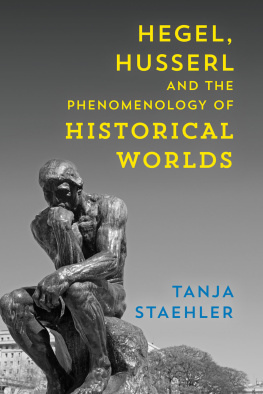
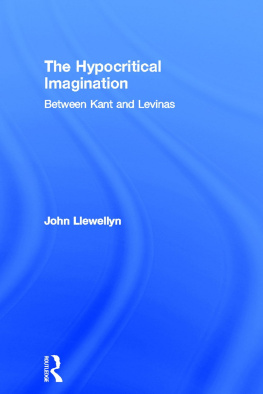
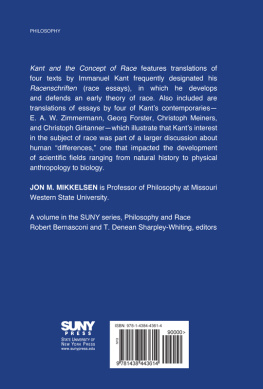
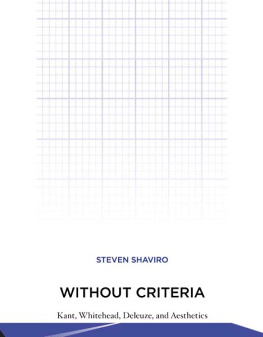

 The paper used in this publication meets the minimum requirements of American National Standard for Information SciencesPermanence of Paper for Printed Library Materials, ANSI/NISO Z39.48-1992.
The paper used in this publication meets the minimum requirements of American National Standard for Information SciencesPermanence of Paper for Printed Library Materials, ANSI/NISO Z39.48-1992.